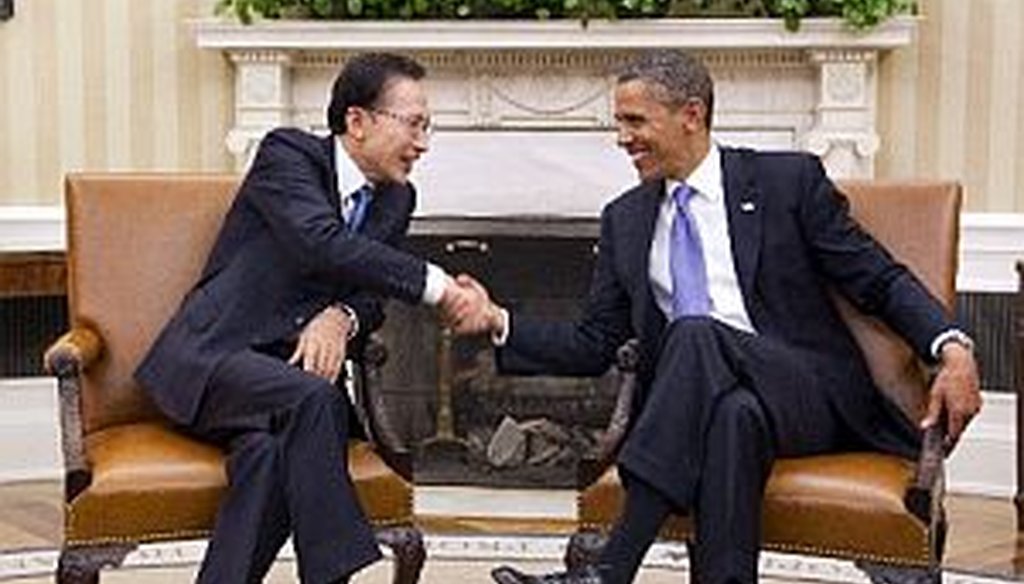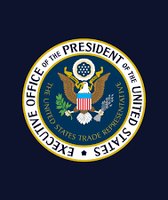Stand up for the facts!
Our only agenda is to publish the truth so you can be an informed participant in democracy.
We need your help.
I would like to contribute

President Obama meets with South Korea President Lee Myung-bak the day after Congress approved a new trade agreement.
Congress moved on Thursday to approve three major trade deals supported by President Barack Obama, easing restrictions via new agreements with South Korea, Colombia and Panama.
During the campaign, Obama promised that new trade agreements would include protections for labor and the environment. We’ve rated that promise Compromise. While the agreements do have some protections, they don’t meet stricter standards that Obama talked about during the campaign. (Read our update for more details.)
Not all the agreements were the same, though. The trade agreement with Colombia got the least support from Obama’s fellow Democrats in Congress, because of concerns about ongoing violence against union organizers.
We fact-checked two similar statements about the trade imbalance between the United States and Korea. Obama said, "You see a whole bunch of Korean cars here in the United States, and you don't see any American cars in Korea." We rated that statement True. Similarly, Rep. Marcy Kaptur, D-Ohio, said, "Last year, Korea sold nearly half a million cars in our country. ... The United States, you know how much we sell to them? Six thousand. What kind of deal is that?" We rated that statement Mostly True after finding her precise numbers were a slightly outdated.
While the two were both right in their facts about the current situation, they reached different conclusions about what the trade agreement might do to change the situation.
Kaptur argued last month that the agreement will actually hurt U.S. manufacturing and increase outsourcing of American jobs to other countries. Even with the agreement, she said, the United States would still end up importing far more cars from Korea.
Obama, on the other hand, has said the agreements will help the economy, and he repeated those sentiments in a statement from the White House after Congress approved the agreements. "Tonight’s vote, with bipartisan support, will significantly boost exports that bear the proud label ‘Made in America,’ support tens of thousands of good-paying American jobs and protect labor rights, the environment and intellectual property."
Our Sources
See individual updates and fact-checks for additional sources
New York Times, Congress Ends 5-Year Standoff on Trade Deals in Rare Accord, Oct. 13, 2011
U.S. House of Representatives, vote on Korea trade agreement, Oct. 12, 2011
U.S. House of Representatives, vote on Colombia trade agreement, Oct. 12, 2011
U.S. House of Representatives, vote on Panama trade agreement, Oct. 12, 2011
U.S. Senate, vote on Korea trade agreement, Oct. 12, 2011
U.S. Senate, vote on Colombia trade agreement, Oct. 12, 2011
U.S. Senate, vote on Panama trade agreement, Oct. 12, 2011
The White House, Statement by the President on the Passage of Trade Agreements and Trade Adjustment Assistance, Oct. 12, 2011
Public Citizen, Job-Killing Trade Deals Pass Congress Amidst Record Democratic Opposition, Oct. 12, 2011

























































